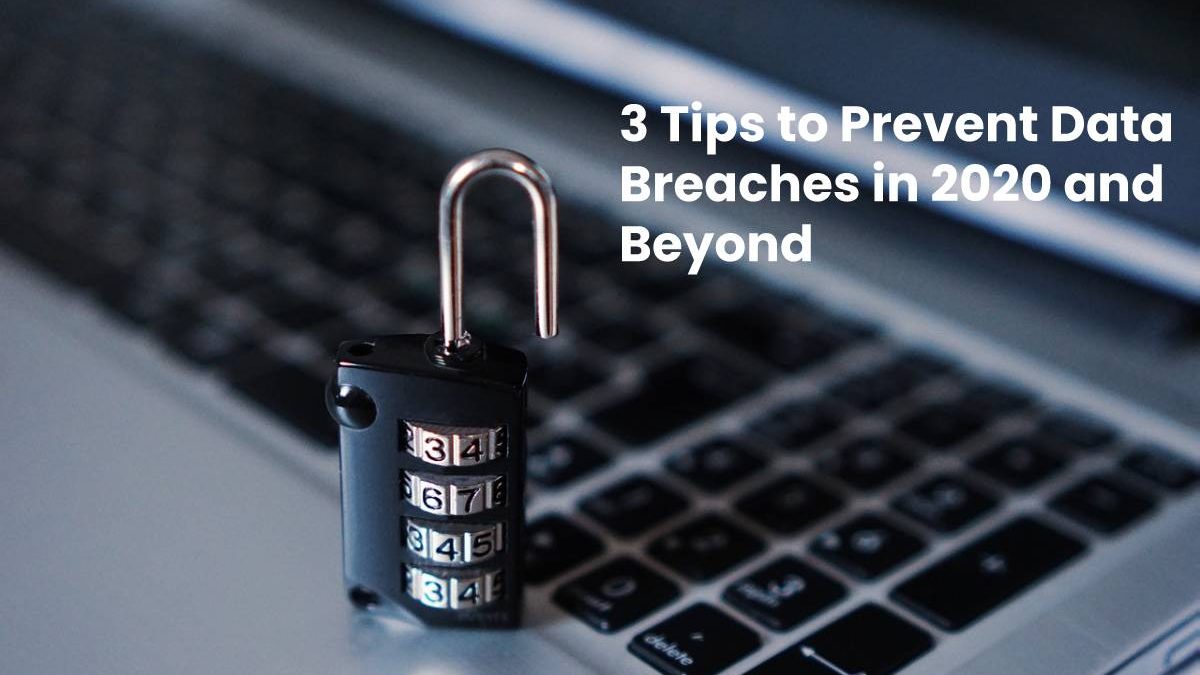Learn 3 ways to prevent data breaches and achieve heightened cyber-security practices to protect customers, employees and your business from relentless hackers.
From early December 2019 to the beginning of 2020, Microsoft experienced a data breach that exposed over 250 million records through one of its customer databases called “support case analytics.” Logs of communications between customers and Microsoft representatives going back 15 years were visible from the cloud to the world. (1)
Table of Contents
Data Breaches Are Not New
It is easy to associate data breaches solely with the 21st century and as a negative result of cloud computing, but that is not the case. Data breaches have existed since the time people began keeping records on a large scale, whether manually or digitally. Bad actors have always understood the value of data compiled by businesses, public entities and healthcare organizations and have sought ways to infiltrate the existing system to steal information for their own gain.
Digital data breaches began to emerge in greater frequency in the 1980s, as technology allowed for greater storage, until public awareness caught up in the 2000s. (2) Today, businesses store more data than ever before; therefore, a breach can impact hundreds of thousands to millions of customers or patients in a single data breach.
Regardless of when and how data breaches started, they are here to stay. The more important consideration is what to do about them. Philadelphia IT service professional, Krystal Triumph breaks down 3 solutions that can help you prevent data breaches in 2002 and beyond.
3 Solutions You Can Use to Steer Clear of Data Breaches in 2024 and Beyond
After a series of massive data breach attacks in 2015-2016, business leaders and IT managers started to wake up to the growing peril associated with collecting, storing and processing data. The types of breaches vary and include malware, phishing, ransomware, and Denial-of-Service (DoS). Each can cause chaos in their own way.
Do you know how to prevent data breaches from hackers whose primary goal to steal your confidential customer, employee, and intellectual data? Cybercriminals spend their whole lives searching for ways to invade your computing system. It is worth your time to find solutions to keep them out.
Here are three solutions you might consider adding to your efforts to prevent data breaches.
#1. Develop Policies and Procedures
Developing comprehensive policies and procedures and educating employees on them is vital to helping them become more aware of the risks they face daily. For instance, employees should stay updated on the latest phishing scams and should know how to detect websites with possible vulnerabilities. With this information, employees work with you to avoid and mitigate risks in a climate where the cybersecurity landscape is constantly changing.
#2. Keep Only the Data That You Need
When it comes to mitigating data loss risks, the adage of “less is more” is vital. Take regular inventory of the type and amount of information in your files, on your computers and in the cloud. Assess that data then reduce to volume, keeping only what is necessary. Do your best to make this an everyday and ongoing strategy. Avoid collecting and storing information you do not need. Finally, consolidate the number of places where you store confidential data.
#3. Safeguard Data Through Restricted Access
The fewer hands and eyes on some data, the better. Only allow a few key employees access to certain confidential data. Maintain these standards through:
- Restricting access to only those employees who work with that data.
- Ensuring that employees who do work with sensitive data are trustworthy and have undergone a background check.
Further, since good security begins with reliable employees, hire carefully. Not only should they undergo a background check, but they should also understand the current risk landscape associated with working with data.
Are You Confident That Your Organization Has a Data Breach Prevention Strategy?
In addition to these tips, there is much more that you can do to keep your valuable data secure. Always stay alert to the threats you face as a custodian of personal information, and focus on protecting customers, employees and your business to help you stay on course for peak protection.

